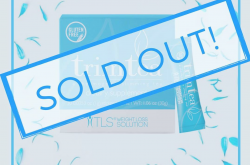By: Tayler Glenn
You’re set to create healthier habits and you’ve got your plan. Your family & friends know, you’ve bought the gym membership, and you’ve written down your goals. But, you may not realize you’re missing one crucial element: Your eating style. Not knowing your eating style can mean there are unforeseen obstacles ahead that could prevent weight loss, but knowing yours can help.
There’s more to weight loss than choosing healthy foods and hitting the gym. Our habits & behaviors around the foods we choose, healthy or unhealthy, make a real difference in how successful we are on our weight loss journey. Part of successful and sustainable weight loss is understanding the unique habits you have around food. Once you identify those habits, you can take steps to maintain the healthy ones, and change the ones that are holding you back.
There are, in general, about 8 eating styles. Take a look at each one, see what fits, then see what you can do to correct any bad habits it may be causing.
Eating Styles
Stress Eater
Eats to avoid or relieve uncomfortable feelings. For some stress eaters, food serves as a form of self-medication to relieve stress or lift their mood. For others, it’s a distraction. Eating gives them something to focus on besides the emotion or problem at-hand.
Emotional Eater
Emotional eaters tend to reach for food when they’re hit with a strong emotion. The emotion doesn’t have to be negative either! If you’re an emotional eater, you celebrate with food when you’re happy and you use food as an escape when you’re upset.
Grazer
Grazers are the ones who don’t typically sit down for full meals, or don’t make a habit of it. Those with this eating style snack throughout the day, taking a bit here and a little there. While it doesn’t sound like a problem, it can be if you’re not keeping an eye on the caloric content & quality of those grazing foods. For example, grazing on potato chips or almonds may mean that you’re far more likely to underestimate how much you’re consuming.
Unconscious Eater
Unconscious eating styles eat while doing other things like watching TV, driving, or reading. Since unconscious eaters are distracted, they often don’t take the time to enjoy the food or keep track of how much they’re eating. This can lead to overconsumption and a lack of satiety, even when you’ve had far more than a serving!
Fast-or-Famine Eater
Sometimes we get busy and don’t eat as often as we should during the day, but this may be one of your eating styles if you find yourself making a habit of it. Fast-or-Famine eaters tend to eat little to nothing all day, then pile all of their calories into a few hours at night. Not only can this affect your sleep, but it can also cause you to drastically overeat because, well, you’re hungry!
Waste-Not Eater
Remember needing to clean your plate before you were allowed to leave the table as a kid? Well, for some people the habit stuck. Waste-Not eaters clean their plates, regardless of how much is on it. Think about how much food is served to you at a restaurant. Those 2-3 servings go down all at once, leading to a habit of overeating.
Stealth Eater
If you’re good at it, you might be the only one able to call yourself out on this one! Stealth eaters may eat healthily in front of others, but hide snacks and treats in drawers, pockets, or purses so that others won’t see them eat it. This sets the stage for a very negative relationship with food and clearly hurts your weight loss progress over time if those treats are unhealthy.
Ideal Eater
Not many of us start here, but all of us can end up here! Ideal eaters are the ones who listen to their body’s cues such as hunger & fullness, using food as fuel and not as a buffer rather than an escape. They are flexible with their food choices and eat a wide variety of foods to provide their bodies with well-rounded nutrition. And, yes, this includes an occasional treat!
Changing Eating Styles
Eating styles are habits, and habits can be changed. But, how do you change those habits? The first step is to identify the difference between physical hunger and emotional hunger.
Do you know the difference?
Emotional Hunger
- Starts suddenly
- Felt mostly in your head or on surface-level thoughts
- Feels like a sharp, incessant craving
- Focused on a specific food, taste, or texture
- Hard to satisfy
Physical Hunger
- Starts gradually and includes signs such as irritability & brain fog
- Physically felt in stomach
- Feels like a growling pain that tends to come in waves
- Open to more food items, even ones you generally wouldn’t choose
- Easy to satisfy
Once you know the difference and how you personally experience each, it will get easier to tell whether food is really what you need. A simple way to test whether it is emotional or physical hunger is to use the Hunger Test!
The Hunger Test
- Are you craving something specific?
- If so, it’s probably based out of a craving or emotional hunger.
- Does the craving pass?
- Hunger doesn’t go away until you’ve eaten, but cravings usually pass. Give yourself 15 minutes to drink water, take a walk, or take a shower, then see if you’re still hungry.
- How hungry are you, really?
- Overindulging is easy, especially if you’re distracted or emotionally eating. Whether you’re about to open the cupboard or are mid-meal, take a moment to check in with your body. Does your stomach feel full? Has the food stopped tasting as good? Those are all signs that your body has had enough.
- When was the last time you ate?
- If it’s been a few hours, there’s a good chance you’re due for a snack or a meal. If you just finished dinner, take a moment to ask yourself whether you’re reaching for dessert out of habit or a drive from one of the eating styles mentioned above.

Remember, we are not our habits but our habits to affect us! Our eating styles and habits impact our health and our relationship with food, so it’s well worth your time to investigate and make the healthy changes you need for a happier you.




Comments (0)